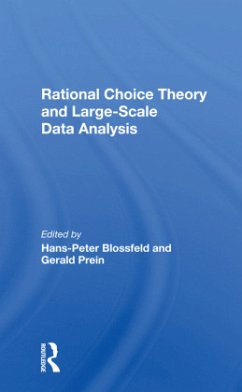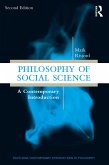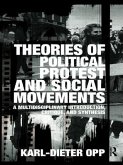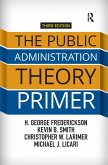21,99 €
inkl. MwSt.
Versandfertig in 6-10 Tagen

11 °P sammeln
- Broschiertes Buch
- Merkliste
- Auf die Merkliste
- Bewerten Bewerten
- Teilen
- Produkt teilen
- Produkterinnerung
- Produkterinnerung
The relationship between rational choice theory and large-scale data analysis has become an important issue for sociologists. Though rational choice theory is well established in both sociology and economics, its influence on quantitative empirical sociology has been surprisingly limited. This book examines why there is hardly a link between the t
Andere Kunden interessierten sich auch für
![Event History Analysis With Stata Event History Analysis With Stata]() Hans-Peter BlossfeldEvent History Analysis With Stata51,99 €
Hans-Peter BlossfeldEvent History Analysis With Stata51,99 €![Sustainable Consumption Sustainable Consumption]() Lucie MiddlemissSustainable Consumption42,99 €
Lucie MiddlemissSustainable Consumption42,99 €![Philosophy of Social Science Philosophy of Social Science]() Mark RisjordPhilosophy of Social Science42,99 €
Mark RisjordPhilosophy of Social Science42,99 €![Theories of Political Protest and Social Movements Theories of Political Protest and Social Movements]() Karl-Dieter OppTheories of Political Protest and Social Movements51,99 €
Karl-Dieter OppTheories of Political Protest and Social Movements51,99 €![UN Peacebuilding Architecture UN Peacebuilding Architecture]() UN Peacebuilding Architecture40,99 €
UN Peacebuilding Architecture40,99 €![The Public Administration Theory Primer The Public Administration Theory Primer]() H. George FredericksonThe Public Administration Theory Primer195,99 €
H. George FredericksonThe Public Administration Theory Primer195,99 €![Women in the European Countryside Women in the European Countryside]() Henry BullerWomen in the European Countryside53,99 €
Henry BullerWomen in the European Countryside53,99 €-
-
-
The relationship between rational choice theory and large-scale data analysis has become an important issue for sociologists. Though rational choice theory is well established in both sociology and economics, its influence on quantitative empirical sociology has been surprisingly limited. This book examines why there is hardly a link between the t
Produktdetails
- Produktdetails
- Verlag: Routledge / Taylor & Francis
- Seitenzahl: 336
- Englisch
- Abmessung: 18mm x 148mm x 233mm
- Gewicht: 486g
- ISBN-13: 9780367300463
- Artikelnr.: 60354899
- Herstellerkennzeichnung Die Herstellerinformationen sind derzeit nicht verfügbar.
- Verlag: Routledge / Taylor & Francis
- Seitenzahl: 336
- Englisch
- Abmessung: 18mm x 148mm x 233mm
- Gewicht: 486g
- ISBN-13: 9780367300463
- Artikelnr.: 60354899
- Herstellerkennzeichnung Die Herstellerinformationen sind derzeit nicht verfügbar.
Hans-Peter Blossfeld is Professor of Sociology at the University of Bamberg in Germany. He directed the European Research Council (ERC) funded project `Education as a Lifelong Process - Comparing Educational Trajectories in Modern Societies' (eduLIFE) at the European University Institute in Florence, Italy (2012-2016).
Preface -- Introduction -- The Relationship Between Rational Choice Theory and Large-Scale Data Analysis-Past Developments and Future Perspectives -- Linking Rational Choice Theory and Quantitative Sociology -- The Quantitative Analysis of Large-Scale Data-Sets and Rational Action Theory: For a Sociological Alliance1 -- The Influence of Simplification on Explananda: Phenomenon-Centered Versus Choice-Centered Theories in the Social Sciences1 -- Rational Choice, Situational Analysis, and Empirical Research1 -- Thresholds and Mechanisms. A Comment on Hedström and Swedberg's Chapter.1 -- Why are Bridge Hypotheses Necessary?1 -- Bridge Assumptions in Rational Choice Theory: Methodological Problems and Possible Solutions -- Large-Scale Data Sets, Rare Events, and Qualitative Research -- Causal Analysis and Comparative Research: What Can We Learn from Studies Based on a Small Number of Cases?1 -- Causality, Comparisons and Bad Practices in Empirical Social Research. A Comment on Stanley Lieberson's Chapter -- Case-Oriented Research and the Study of Social Action -- Empirical Analyses Using Rational Choice Theory -- The Need of Data Analysis for Rational Action Theory: Pros and Cons -- Bringing Individuals Back into Sociology. Three Aspects of Cohesion in Dutch Society During the 20th Century -- Can and Should Rational Choice Theory Be Tested by Survey Research? The Example of Explaining Collective Political Action -- Rational Choice Theory and Longitudinal Research -- A Dynamic Integration of Micro- and Macro-Perspectives Using Longitudinal Data and Event History Models -- Modeling Rational Action: A Longitudinal Approach -- Modeling the Dynamics of Micro-Social Change: Results of a Three Wave Intervention Study of Travel-Mode Choice in a Region1 -- Future Perspectives -- The Future of Rational Choice Theory and its Relationships to Quantitative Macro-sociological Research
Preface -- Introduction -- The Relationship Between Rational Choice Theory and Large-Scale Data Analysis-Past Developments and Future Perspectives -- Linking Rational Choice Theory and Quantitative Sociology -- The Quantitative Analysis of Large-Scale Data-Sets and Rational Action Theory: For a Sociological Alliance1 -- The Influence of Simplification on Explananda: Phenomenon-Centered Versus Choice-Centered Theories in the Social Sciences1 -- Rational Choice, Situational Analysis, and Empirical Research1 -- Thresholds and Mechanisms. A Comment on Hedström and Swedberg's Chapter.1 -- Why are Bridge Hypotheses Necessary?1 -- Bridge Assumptions in Rational Choice Theory: Methodological Problems and Possible Solutions -- Large-Scale Data Sets, Rare Events, and Qualitative Research -- Causal Analysis and Comparative Research: What Can We Learn from Studies Based on a Small Number of Cases?1 -- Causality, Comparisons and Bad Practices in Empirical Social Research. A Comment on Stanley Lieberson's Chapter -- Case-Oriented Research and the Study of Social Action -- Empirical Analyses Using Rational Choice Theory -- The Need of Data Analysis for Rational Action Theory: Pros and Cons -- Bringing Individuals Back into Sociology. Three Aspects of Cohesion in Dutch Society During the 20th Century -- Can and Should Rational Choice Theory Be Tested by Survey Research? The Example of Explaining Collective Political Action -- Rational Choice Theory and Longitudinal Research -- A Dynamic Integration of Micro- and Macro-Perspectives Using Longitudinal Data and Event History Models -- Modeling Rational Action: A Longitudinal Approach -- Modeling the Dynamics of Micro-Social Change: Results of a Three Wave Intervention Study of Travel-Mode Choice in a Region1 -- Future Perspectives -- The Future of Rational Choice Theory and its Relationships to Quantitative Macro-sociological Research







